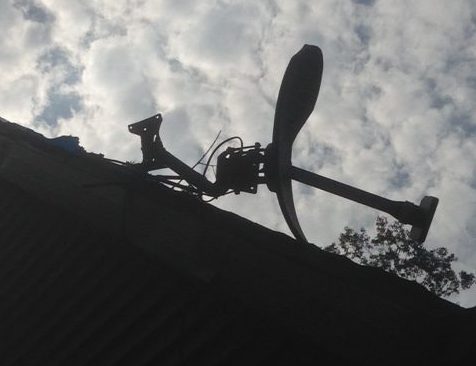Cutting the cord now means broadband too
 Cutting the cord now applies to Internet too as fewer homes now subscribe to broadband Internet than just two years ago. A Pew Research survey reveals that for the first time ever, the number of homes that had broadband declined by more than 1 percent (67% from 70%) in any two year period. Smartphone ownership continues to rise, 68% of Americans own a smartphone compared to 55% two years ago. The combination of these results signifies a significant shift in the mode of Internet access and should indicate a change in market demands moving forward. In fact, 13% of adults exclusively rely on their smartphones for Internet access.
Cutting the cord now applies to Internet too as fewer homes now subscribe to broadband Internet than just two years ago. A Pew Research survey reveals that for the first time ever, the number of homes that had broadband declined by more than 1 percent (67% from 70%) in any two year period. Smartphone ownership continues to rise, 68% of Americans own a smartphone compared to 55% two years ago. The combination of these results signifies a significant shift in the mode of Internet access and should indicate a change in market demands moving forward. In fact, 13% of adults exclusively rely on their smartphones for Internet access.
Looking a little deeper into the results, the survey indicates that lower income households are the driver behind the shift to smartphone-only access. 21% of adults with annual incomes of $20,000 or less exclusively get their internet access from their phones, up from 13% two years ago. This means when left with a choice of one or the other, consumers are choosing their phones.
Indeed, cost is the most important reason why non-broadband users do not currently subscribe with 33% of non-broadband users stating the monthly cost is too expensive. Of those surveyed only 12% who were identified as non-broadband users stated the smartphones does everything online that you need to do. However, among non-broadband users who own a smartphone, 29% say their phone does everything they need to do on-line. That is a pretty close second for reasons not to subscribe to broadband.
The Pew survey also states that the lower income users are also more likely to be up against data caps or need to suspend their service from time to time. What does this mean for the cell phone and broadband markets? It is possible more services will be catered to smaller mobile devices. Entertainment information utilizing apps like Twitter or Facebook might win out over data dependent forms such as Netflix or YouTube. This might take place within certain demographics, but we don’t see it happening anytime soon as an overall result. Netflix has almost doubled it’s subscriptions from the same 2013 to 2015 span the Pew poll takes place climbing from 36 million in 2013 to 69 million in 2015. This means that for the users remaining on-line with broadband, they are taking advantage of the cost savings and variety of options the Internet gives them vs. the limited choices they have with cable or satellite TV.
Just the thought of cutting the cord referring to broadband is hard to get used to, but different users have different needs. We will have to wait and see if the trend continues in an overall broadband decline and the economic reasons non-users cite for doing so.





